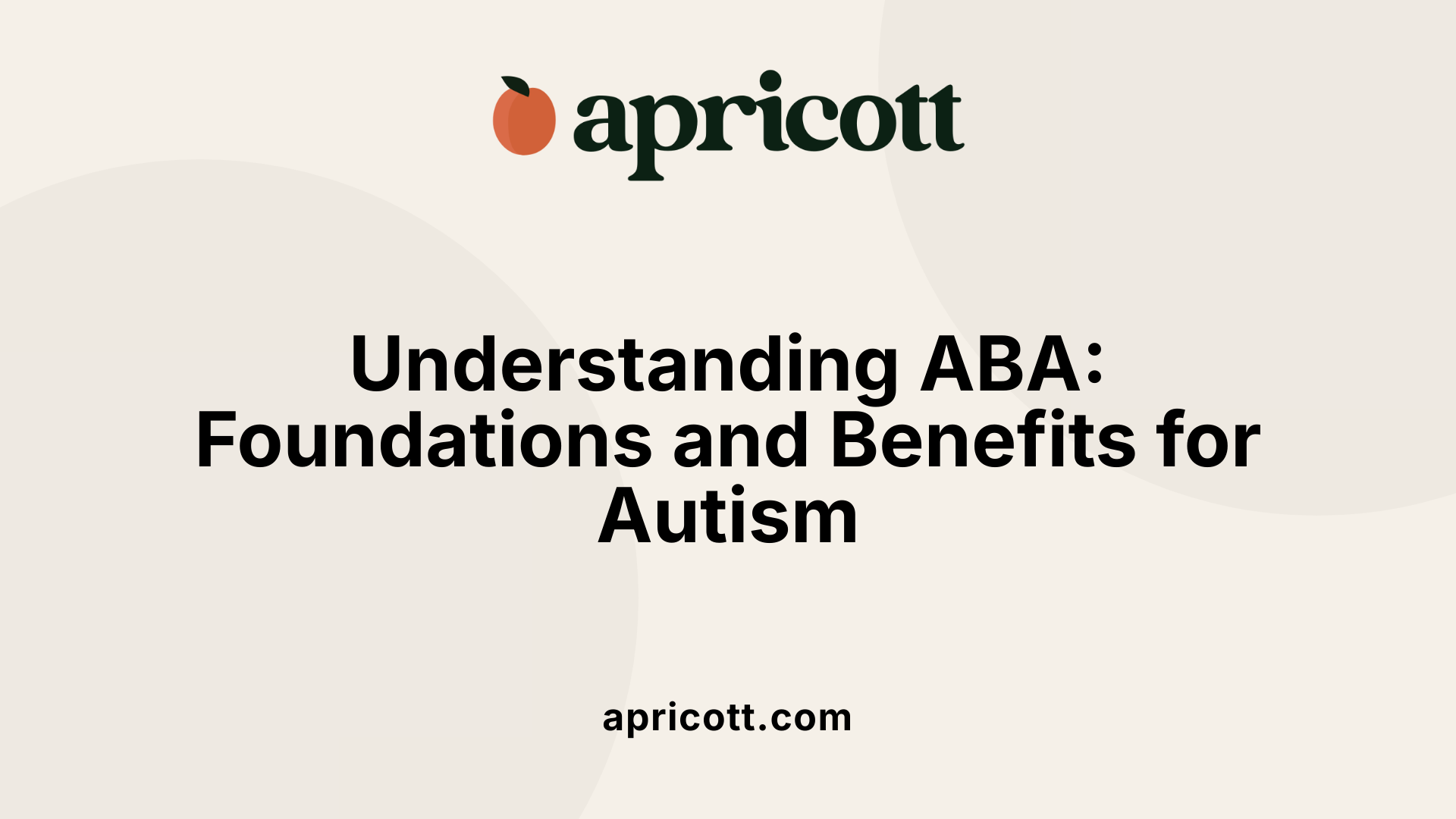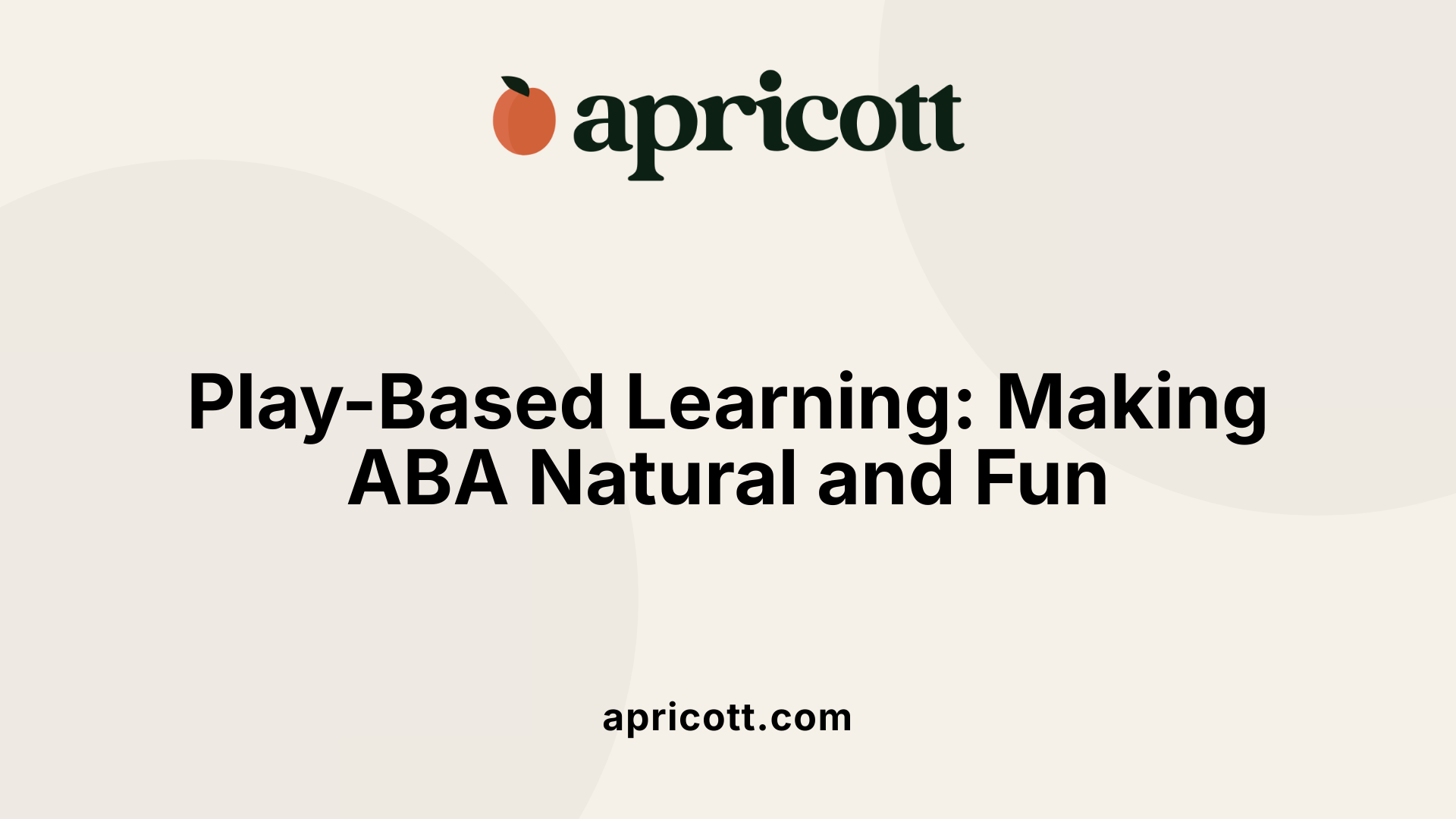December 2, 2025
Voices of Strength and Understanding: Insights and Inspiration on Autism
Autism spectrum disorder (ASD) touches millions of lives worldwide, and while the challenges can be significant, so too are the stories of resilience, understanding, and empowerment. Quotes from notable figures with autism and experts alike help illuminate the diversity and unique beauty of autistic individuals. Alongside these voices, therapeutic approaches such as Applied Behavior Analysis (ABA) continue to provide meaningful support to children and families, fostering growth and acceptance. This article explores inspiring autism quotes, the role of ABA therapy, and the vital services available to nurture development and celebrate neurodiversity.

Notable quotes from individuals with autism, such as Temple Grandin's inspiring statement, "I am different, not less," serve as powerful tools in transforming public perceptions. These words challenge long-standing stereotypes and misconceptions by spotlighting the unique strengths, perspectives, and diversity inherent within the autism community.
Such quotes not only foster a deeper understanding but also promote compassion and acceptance. They remind us that autism encompasses a wide range of traits and abilities, encouraging society to embrace neurodiversity rather than focus on deficits.
Circle Care Services embraces this philosophy by promoting education, dialogue, and empathy through their website content. Highlighting these meaningful sayings helps to empower individuals with autism and their families, contributing to a culture of respect and inclusion.
By celebrating these voices during events like Autism Awareness Month, the message of acceptance becomes louder and more impactful. This approach nurtures an environment where differences are valued and everyone is recognized for their unique contributions.

Applied Behavior Analysis (ABA) therapy is a scientifically-based method designed to enhance specific behaviors and skills in individuals with autism. Rooted in principles of learning and conditioning, ABA focuses on promoting helpful behaviors—such as communication, social interaction, and academic skills—while reducing behaviors that may be harmful or interfere with learning.
ABA involves careful observation and analysis of behavior and its triggers. Therapists use tailored strategies, including positive reinforcement, to encourage desirable behaviors. For example, when a child successfully uses a new communication skill, they may receive praise or a preferred reward, increasing the likelihood they will use the skill again.
Originating in the 1960s, ABA is grounded in behavioral psychology research. It is recognized as an evidence-based, effective treatment for autism, with many studies reporting significant gains in communication, social abilities, and overall independence in children receiving ABA therapy.
Positive reinforcement is a central technique within ABA. By rewarding positive behaviors, therapists help children increase their functional skills and reduce challenging behaviors. ABA also emphasizes understanding what happens before (antecedents) and after (consequences) a behavior to strategically shape or modify it.
Today, many providers like Circle Care Services incorporate ABA in both home and center settings, adapting interventions to each child's needs using naturalistic and play-based approaches. Parent training and social skills development further support long-term success, fostering understanding, acceptance, and empowerment of children with autism.

ABA therapy services are primarily delivered by trained professionals specializing in behavior analysis. Among these experts are board-certified behavior analysts (BCBAs), who design and oversee individualized treatment plans based on detailed assessments of each child's needs. Certified therapists work closely with BCBAs to implement these plans, often conducting sessions either in the child's home or in specialized center settings.
BCBAs take on supervisory and evaluative roles, ensuring that interventions meet established, evidence-based standards such as Applied Behavior Analysis techniques. Therapists, on the other hand, engage directly with children, applying strategies to improve communication, reduce challenging behaviors, and enhance social and functional skills. Parent training is also incorporated to empower caregivers with skills to support therapy goals effectively at home.
ABA therapy often functions within a broader, multidisciplinary team. Alongside BCBAs and therapists, professionals like occupational therapists and speech-language pathologists contribute their expertise to address various developmental areas. This collaborative approach ensures comprehensive support for the child, with coordination among providers facilitating continued progress and family involvement.
Circle Care Services exemplifies this model, offering behavior therapy informed by evidence-based practices and incorporating parent and social skills training. Their approach emphasizes understanding, acceptance, and empowerment, advocating for education, dialogue, and compassion to celebrate the strengths and diversity within autism.
Behavioral analysis, especially Applied Behavior Analysis (ABA), is a powerful approach used by organizations like Circle Care Services to support children with autism. ABA focuses on using evidence-based techniques to improve essential skills such as communication, social interaction, and academic learning. By applying positive reinforcement and tailoring interventions to each child's unique needs, ABA therapy effectively encourages learning and skill development.
One major benefit of ABA in autism therapy is the reduction of problematic behaviors that can interfere with daily functioning and social integration. Through data-driven assessments and targeted strategies, behavioral issues are addressed systematically, which leads to improved behavior management.
Additionally, behavioral analysis promotes increased independence and enhances the overall quality of life for children with autism. Skills gained from therapy empower children to engage more fully in their environments, whether at home or in school settings. Early and consistent ABA interventions can help children integrate into mainstream activities and build stronger social connections.
Circle Care Services complements ABA therapy with parent training and social skills training, ensuring that progress continues beyond sessions. The organization's commitment to fostering understanding, acceptance, and empowerment highlights the holistic benefits of behavioral analysis — bolstering not just abilities, but confidence and community inclusion as well.
These factors collectively demonstrate that behavioral analysis is a scientifically supported and practical framework that enriches the lives of children with autism and their families.
Circle Care Services offers dedicated behavior therapy for children with autism, delivered in the comfort of their homes as well as in structured center settings. This dual approach ensures flexibility and consistency, adapting to each child’s unique needs and daily environment.
The organization places strong emphasis on parent training programs, equipping families with practical skills and strategies to support their children's development beyond therapy sessions. By involving caregivers deeply, Circle Care Services fosters a collaborative approach that extends care into everyday life.
Additionally, the service provides social skills training, a crucial component for helping children with autism build meaningful peer relationships and improve communication.
Central to their work is the use of evidence-based Applied Behavior Analysis (ABA) techniques. ABA methods are proven to be effective in promoting positive behaviors and reducing challenges, making therapy goals measurable and tailored.
Together, these offerings create a comprehensive support system that empowers children and families, promoting growth, understanding, and inclusion.
Circle Care Services emphasizes fostering a deep understanding of autism to encourage acceptance. By highlighting the unique strengths and diversity within the autism spectrum, the organization promotes a culture of respect and inclusion. Notable voices like Temple Grandin, who famously said, "I am different, not less," inspire a shift from viewing autism as a deficit toward recognizing it as a distinct way of experiencing the world.
Education and open dialogue are at the heart of effective autism support. Circle Care Services offers parent training programs and social skills training that equip families and children with valuable tools to navigate challenges. This educational approach builds awareness about the varying presentations of autism and reduces stigma, encouraging informed conversations around the condition.
Compassion combined with education empowers individuals with autism to reach their full potential. The organization integrates evidence-based practices like Applied Behavior Analysis (ABA) tailored to the individual, fostering growth both at home and in center settings. During Autism Awareness Month, Circle Care Services celebrates neurodiversity, promoting empowerment through acceptance and understanding.
Education and open communication raise awareness about autism's diverse challenges, helping to dismantle stigma and nurture acceptance. Compassion ensures that individuals with autism receive dignity and respect, while empowerment enables them to thrive socially and academically. Together, these pillars build supportive communities, enhance quality of care, and promote social integration, creating a more inclusive environment for all.
Autism Awareness Month is observed every April to shine a spotlight on autism spectrum disorder (ASD), aiming to foster understanding and acceptance worldwide. This month-long observance is dedicated to increasing public knowledge about autism, dispelling misconceptions, and encouraging supportive environments.
Autism Awareness Month serves as a platform to promote acceptance and the concept of neurodiversity — recognizing autism as a natural variation of human neurology rather than a deficit. This shift emphasizes compassion, respect, and empowerment for individuals on the spectrum, highlighting their strengths and unique perspectives. Campaigns and educational efforts encourage society to embrace these differences and challenge stigmas.
During Autism Awareness Month, the community celebrates achievements, diversity, and the voices of those with autism. Emphasizing quotes like Temple Grandin's I am different, not less, the month encourages dialogue and education to foster inclusion. Activities often include parent training, social skills workshops, and opportunities for individuals with autism to showcase their talents, reinforcing the message of empowerment and acceptance.
How is Autism Awareness Month used to promote acceptance and celebration? Autism Awareness Month serves as a dedicated time to increase public understanding, celebrate the unique contributions of individuals with autism, and advocate for acceptance and inclusion. Activities and campaigns during this month emphasize neurodiversity the recognition and respect of different neurological conditions as natural variations helping to break down barriers and inspire communities to adapt and embrace differences.

Modern ABA therapy incorporates a variety of techniques designed to engage children in meaningful and relevant learning experiences. Instead of relying solely on structured drills, practitioners now emphasize strategies that are naturalistic, child-led, and play-based. This approach helps children with autism develop skills within real-life contexts, increasing generalization and promoting better engagement.
Naturalistic interventions embed learning opportunities into everyday activities and play situations. These methods encourage children to initiate interactions and express their interests, making therapy more enjoyable and effective. By using a child’s natural environment—whether at home or in community settings—therapists help children acquire communication, social, and adaptive skills in ways that feel meaningful and motivating.
Each child’s unique preferences and motivations are central to successful therapy. Tailoring ABA programs to the child’s interests boosts engagement and encourages active participation. For example, using favorite toys or activities can serve as natural reinforcers, facilitating learning with greater enthusiasm. By respecting and incorporating a child’s passions, therapy becomes a collaborative journey that fosters growth and empowerment.

Applied Behavior Analysis (ABA) therapy, while widely recognized as an evidence-based practice, faces several misunderstandings. Some people mistakenly view ABA as rigid or solely compliance-driven, which can overshadow its broader goal of enhancing quality of life for children with autism. Misconceptions also arise around the assumption that ABA eliminates autistic traits rather than promoting functional skills.
Many concerns about ABA stem from past practices that may have been overly focused on behavior control without sufficient attention to individual needs. Ethical considerations now emphasize the importance of respecting the child’s autonomy and preferences. Circle Care Services incorporates these principles by offering ABA within a compassionate framework, ensuring therapy is both respectful and empowering.
ABA therapy at Circle Care Services is tailored to each child's unique strengths and challenges. This individualized approach aligns with promoting understanding and acceptance, as highlighted by the organization’s commitment to education and dialogue. Compassionate care also involves supporting families through parent training and social skills development, fostering a supportive environment that values neurodiversity rather than trying to "normalize" children. Such a mindset reflects powerful sentiments like Temple Grandin's declaration, "I am different, not less," stressing acceptance over conformity.
Many autistic individuals share their personal journeys to highlight the unique perspectives and strengths within the autism community. These stories often emphasize resilience, creativity, and diverse ways of thinking that challenge common stereotypes.
Notable figures like Temple Grandin have profoundly influenced how autism is understood. Grandin’s assertion, "I am different, not less," serves as a powerful reminder that autism encompasses a wide range of abilities and contributions rather than limitations.
By featuring these voices and quotes, organizations like Circle Care Services help shift public perception towards greater acceptance and appreciation of neurodiversity. This approach fosters a community built on empathy, respect, and empowerment, promoting education and meaningful dialogue about autism.
Support for individuals with autism doesn't end after childhood; it continues to be essential throughout life. Circle Care Services emphasizes this by offering behavior therapy not only in early years but also as part of ongoing developmental support. By providing both home-based and center-based therapy, the organization ensures a stable environment for consistent progress.
Continuous education and therapeutic interventions empower individuals with autism to develop social skills and independence at every stage. Circle Care Services incorporates parent training and social skills training which equip families with tools to support lifelong learning. Their use of evidence-based ABA techniques fosters adaptable learning suited to each individual’s evolving needs.
Empowerment extends beyond therapy, cultivating understanding, acceptance, and dialogue. The organization promotes compassion and education to highlight neurodiversity as a strength. Celebrating events like Autism Awareness Month reinforces community involvement and awareness. Inspirational voices like Temple Grandin remind us to appreciate the unique abilities of individuals with autism, reinforcing the message: "I am different, not less." This inclusive approach uplifts both families and individuals, encouraging confidence and resilience throughout life.
The words of those who live with autism and the science behind therapies like ABA converge to create a richer, more inclusive narrative for autism spectrum disorder. Embracing neurodiversity means valuing different ways of thinking and being, while access to proven, compassionate therapies offers a path toward greater independence and fulfillment. As awareness grows through education and inspirational voices, communities become stronger allies. Together, they build a future that celebrates the unique contributions of every individual on the spectrum and empowers them to thrive.